New Fall Courses: Cancer, Stem Cells, Personal Genomics, Molecular Neuroscience, and Genome Editing
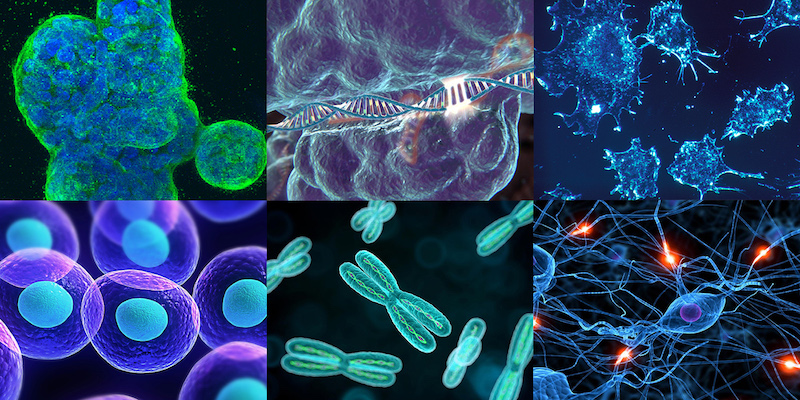
This fall we designed and redesigned courses to capture the cutting edge of biomedical science. Our new courses included 03435 Cancer Biology, taught by Jason D'Antonio, 03410/03756 Genome Editing Biotechnology, taught by Aaron Mitchell, and 03366 Biochemistry of the Brain, taught by DJ Brasier. Our re-engineered courses included two sections of 03121 Modern Biology. One focused on Stem Cells and Cancer, and was taught by Becki Campanaro and Jason D'Antonio; the other focused on Human Genetics and Personal Genomics, and was taught by Javier Lopez and Linda Visomirski-Robic.
03435 Cancer Biology was piloted last year and offered as a fully developed course this fall. Jason D’Antonio sought to examine various hallmarks of the biology of cancer while exploring novel concepts that challenge our understanding of cell biology. D'Antonio has had extensive training in Cancer Biology, with 9 publications in that area. A major course component is the in-depth exploration of the primary literature and review articles to better understand research and methods of investigation into the cellular and molecular processes of tumorigenesis. This course included interactive lectures, guest speakers, and in-class discussions. There were also extensive writing exercises that aimed to improve understanding as well as writing quality. A key highlight of the course was the student-driven, active learning, in-class discourse about research studies in the scientific literature, a process that intends to help students connect their foundational knowledge in biology to complex biomedical research.
03410/03756 Genome Editing Biotechnology was a mini-course pilot this fall. The main objective was to capture the rapidly expanding field of CRISPR-Cas9-based genome engineering before the first textbook is written, so that our students will be ahead of students at other institutions. Material was presented mainly in lectures, with optional readings of review articles hand picked by Aaron Mitchell. Guest lecturers covered the ethical considerations of human genome modification, as well as the state of the art in gene therapy. The course will likely be offered next fall, incorporating several excellent modifications recommended by students in the online course evaluations.
03366 Biochemistry of the Brain was a new advanced elective in the growing area of Neuroscience. Students applied the quantitative biochemistry concepts of enzymatic inhibition to problems involving ion channel conduction and synaptic communication in the brain. DJ Brasier has published extensively in the area of Neuroscience and in the area of undergraduate education, and was a recent recipient of a Wimmer Fellowship for teaching innovation. In this course, the majority of the coursework was done in groups. In small teams, students explored the function of many different neurotransmitters in health and disease, including serotonin, norepinephrine, and dopamine. A second project tasked students with exploring the role various drugs of abuse have on these biochemical systems. Final projects required students to identify an area for future research and present a proposal for how they would develop new avenues for investigating brain biochemistry.
03121 Modern Biology: Stem Cells and Cancer was one of our efforts to have instructors teach to their research interests. Becki Campanaro has training in the area of Stem Cell biology, and had helped to run the prestigious Stem Cells summer course at the Marine Biological Labs in Woods Hole, MA. D'Antonio, as mentioned above, has worked extensively in the area of Cancer Biology. Building on the key foundational concepts of an introductory biology course, the approach of this course was to draw tangible connections between fundamental scientific ideas and major biomedically relevant issues in society. As well, the small size (roughly 40 students) of the course enables instructors to engage students one-on-one, which provided opportunities for students to actively participate in the learning process. Importantly, the overall course strategy emphasized critical and analytical thinking as a tool to foster deeper, more effective learning of key biological processes.
03121 Modern Biology: Human Genetics and Personal Genomics was a second foray into an area of instructors' research interests. Javier Lopez has worked in the area of genetics and genomics for decades, with numerous publications and conference presentations in this area. Linda Visomirski-Robic was trained in the area of RNA biology, and has contributed to our teaching mission for over a decade. The course sought to downplay memorization and instead sought to convey the importance and excitement of this field. Lopez and Visomirski-Robic explored an alternative approach in which fundamental biological concepts are introduced and explored in the context of a specific topic of contemporary importance. Following an overview of the fundamental components of living organisms and their functions, the second half of the course highlighted human genetics and personal genomics and their role in population health and the development of precision medicine. Key issues included human genome sequence technology and interpretation, and the interaction of inheritance and environment to determine risk for cancer and complex diseases like diabetes, hypertension or cognitive disorders.
These new course offerings represent our faculty's ongoing commitment to prepare our students to see the scientific horizon, so that they can arrive there first! Innovation in education, in our view, must address both course conduct and course content. We appreciate that we are given the brightest students, and we seek to ensure that they have the brightest future.
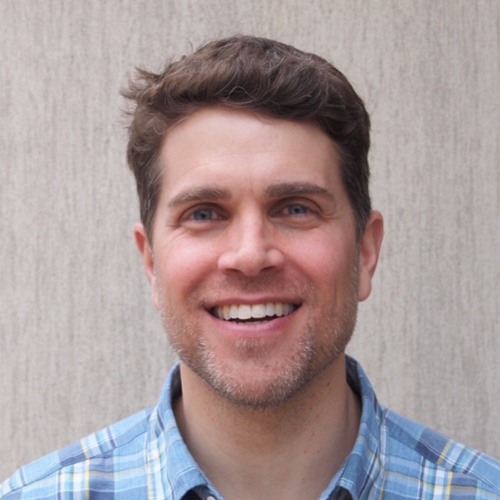 Jason D'Antonio, Ph.D.
Jason D'Antonio, Ph.D.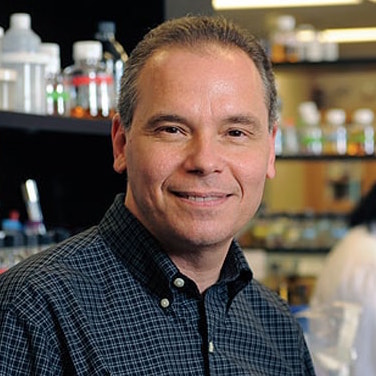 Aaron Mitchell, Ph.D.
Aaron Mitchell, Ph.D. DJ Brasier, Ph.D.
DJ Brasier, Ph.D. Becki Campanaro, Ph.D.
Becki Campanaro, Ph.D.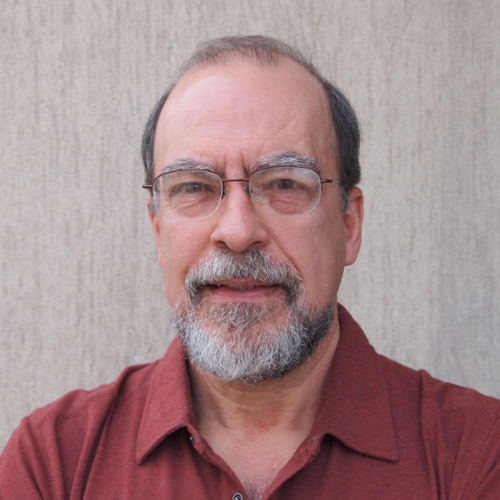 Javier Lopez, Ph.D.
Javier Lopez, Ph.D.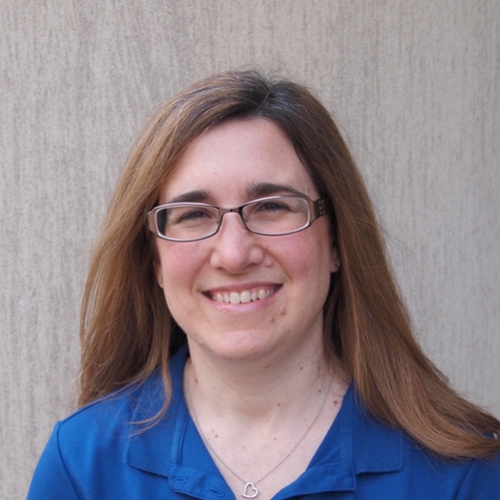 Linda Visomirski-Robic, Ph.D.
Linda Visomirski-Robic, Ph.D.